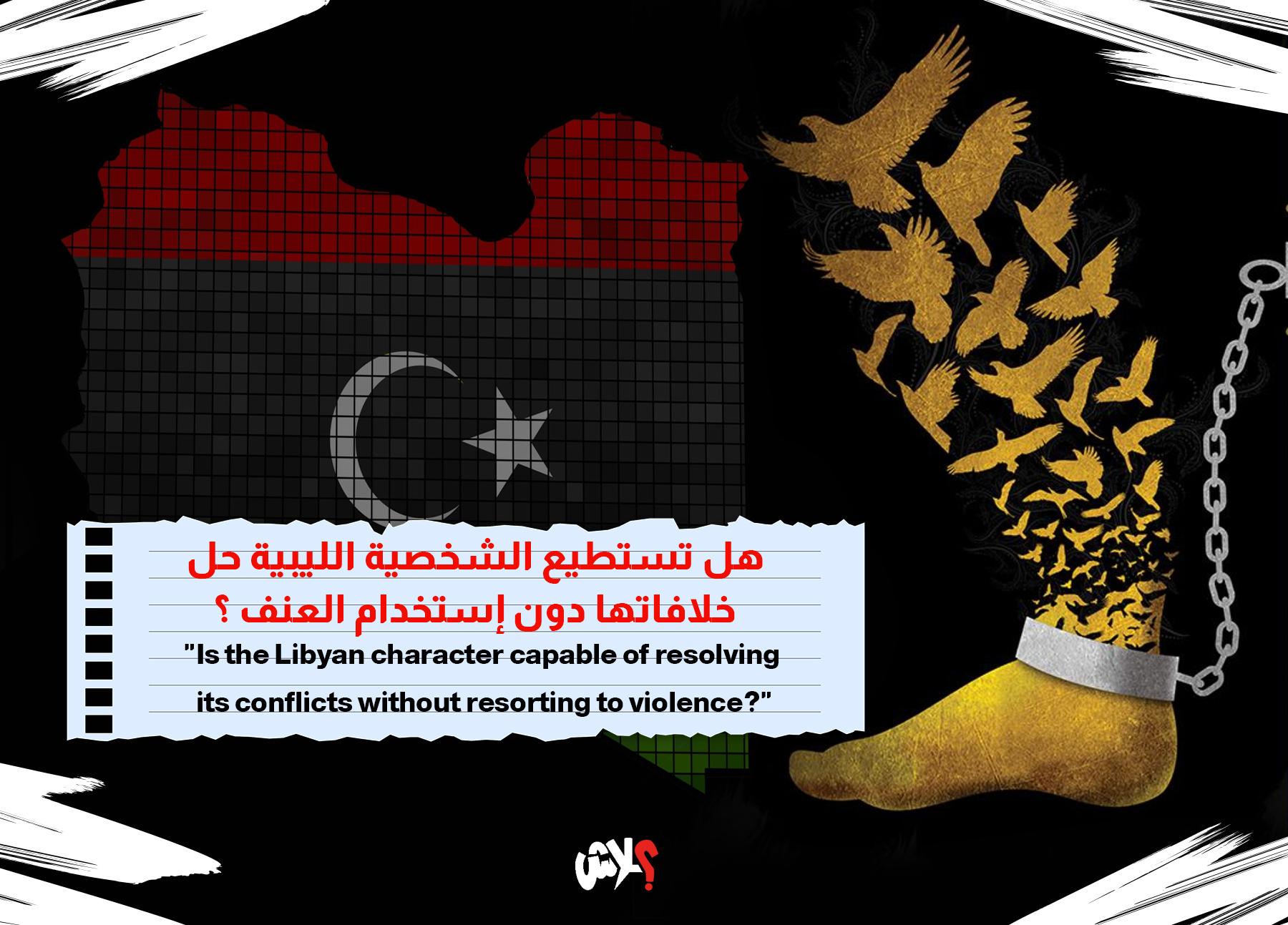"Is the Libyan character capable of resolving its conflicts without resorting to violence?"
Martin Luther King once said, "Violence, even when it brings about temporary victories, never brings permanent peace." Should we not reconsider our approach to conflict resolution, both as individuals and as nations, and move away from violence, if only as an experiment, to perhaps find both internal and external peace?
In 2011, Libya experienced a revolution against the regime of Muammar Gaddafi, who had ruled for more than four decades, during which he relied solely on violence to suppress any attempt at rebellion or rejection of his domestic and foreign policies. Given the success of his violent methods in oppressing Libyans, he exported this violence abroad in various assassination and bombing attempts against both Libyan and foreign critics of his person and regime.
The revolution, which could not continue on the peaceful path that had characterized its predecessors in Tunisia and Egypt, quickly descended into violence from its early days. After a bitter struggle, the revolution succeeded in overthrowing Gaddafi, but the country then entered a new cycle of violence and power struggles.
After the fall of Gaddafi's regime, a new phase of violence and power struggles began among the various factions in Libya. These included armed militias, terrorist groups, and rival governments in Tripoli, Tobruk, and Benghazi, each seeking to impose its agenda and vision while demonizing its opponents to mobilize public opinion against them, thereby eliminating them and seizing power for itself. This conflict has led to a state of chaos and political instability, which in turn has caused economic shocks that have burdened the citizenry, distracting them from politics and its associated violence with the pursuit of daily sustenance (letting whoever governs, govern).
Although citizens have become preoccupied with their daily lives and have been distracted from politics and its violent outcomes, they remain the direct victims of the violence generated by political conflicts. Their sons are the fuel for the wars being fought in their neighborhoods, resulting in the destruction of their homes and sources of livelihood, forcing many to flee and seek refuge. Over the past years, violence has had a devastating impact on civilians in Libya. Many families have lost their homes and loved ones, and the country has suffered severe humanitarian and economic crises from which it has yet to recover.
Over the past thirteen years, the country has witnessed numerous acts of violence, most of which have been politically motivated. Some of these acts were supported by other countries seeking to impose a particular agenda in Libya and the region by empowering a loyal regime, which exacerbated and prolonged the conflict. Despite some temporary victories for one side or another, this violence has not contributed to achieving lasting peace, nor has any party been able to fully establish its dominance and eliminate all its opponents.
Even as armed efforts continue, and the mobilization persists to this day, political attempts also continue in the hope of finding a path to reconciliation and peace. This includes political agreements such as the Skhirat Agreement, the 2020 ceasefire agreement, and the Geneva Forum in the same year. However, these attempts have also failed to achieve lasting stability and have directly led to the emergence of new competing entities and the rise of new key players who may be difficult to remove from the stage in the near future.
The Libyan situation clearly illustrates the truth of Martin Luther King’s statement: the temporary victories achieved through violence have not brought lasting peace; instead, they have led to further chaos and suffering. This highlights the urgent need for a comprehensive peaceful settlement that will rebuild the state and ensure its stability, as true peace can only be achieved through dialogue and reconciliation, not through violence and armed conflict.
But who is supposed to lead the efforts for dialogue and reconciliation? Can the various councils, which cannot even protect their members from violence, be capable of achieving peace? Or should the governments born from these councils be the ones to undertake this task?
The truth is that these councils are nothing more than glossy fronts in suits and ties, concealing the bloodstained military uniforms of the militias from the East and West. The truth is also that the governments in the East and West are merely tools used by the same forces to plunder the nation’s wealth and deplete it. Neither the councils nor the governments can make binding peace agreements because they do not have control over those who hold the weapons; rather, they are themselves under the control of those who hold the weapons.
Real peace will be achieved when those who resort to violence realize that violence is not a means to achieve peace, and that peace requires more courage than the decision to go to war. It will require those who wield the weapons—the true rulers of the country—to step out from behind the curtain, discard the puppets they manipulate into the trash, and enter into a genuine dialogue with their real faces, names, titles, and military uniforms, with sincere intentions to achieve peace and stability, rather than maneuvering to prolong the conflict and exploit it for their benefit, as their tools—the councils and governments—are doing today.

